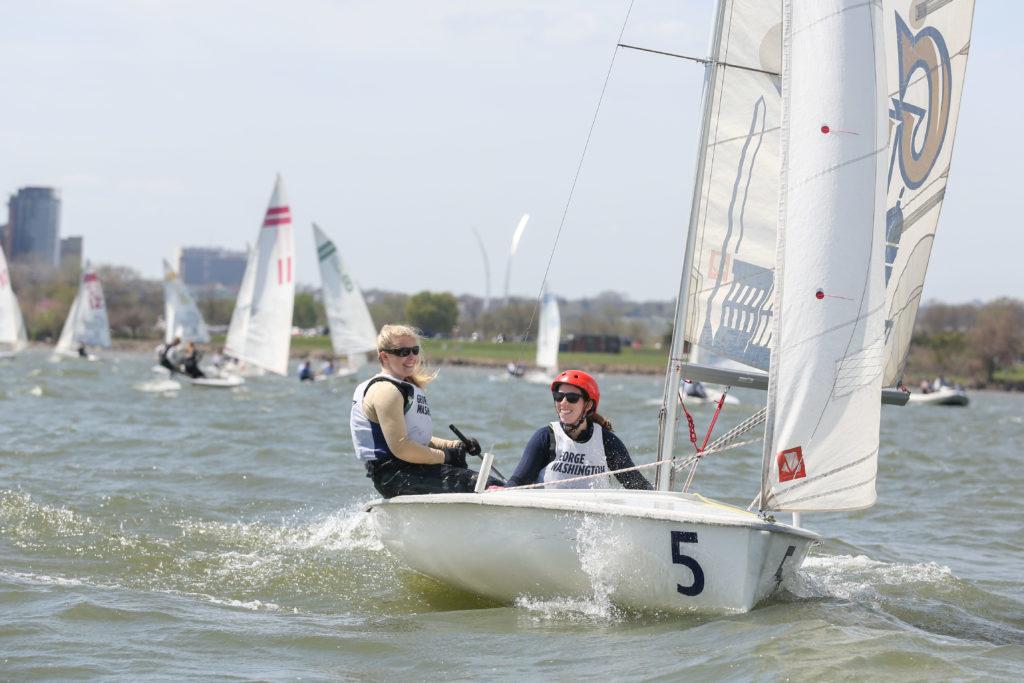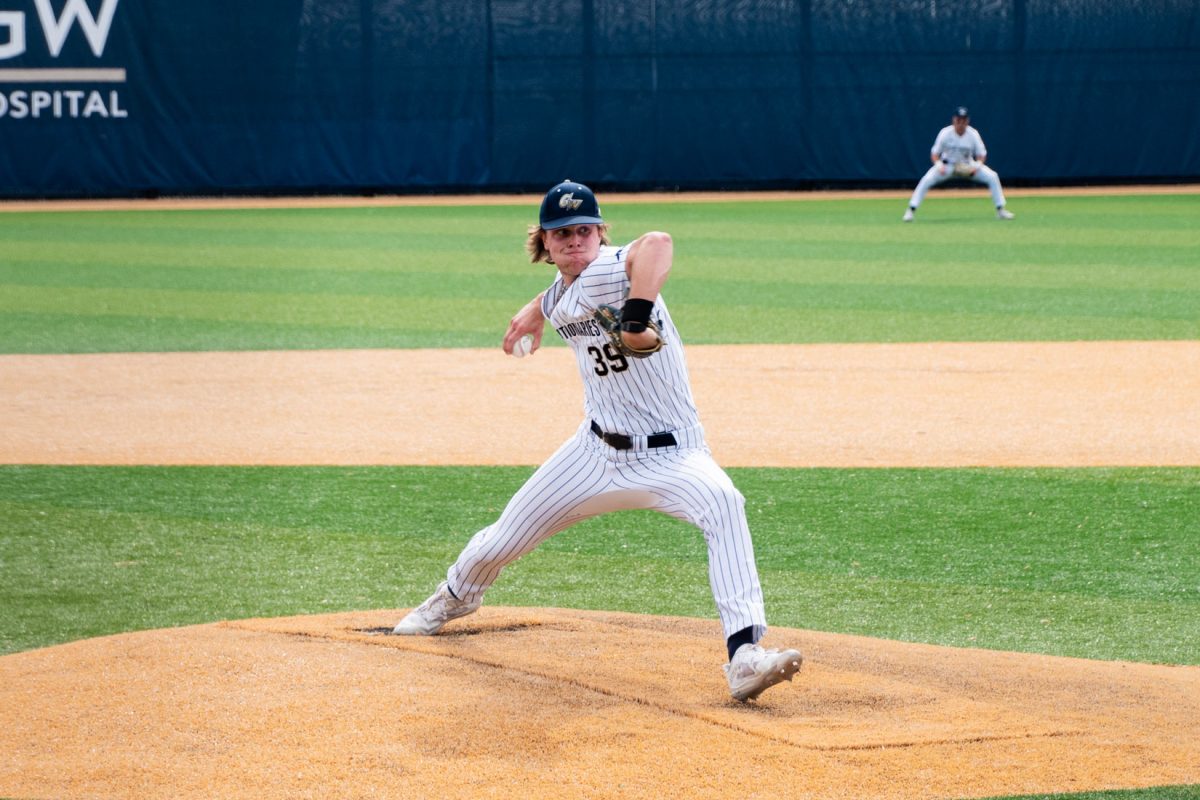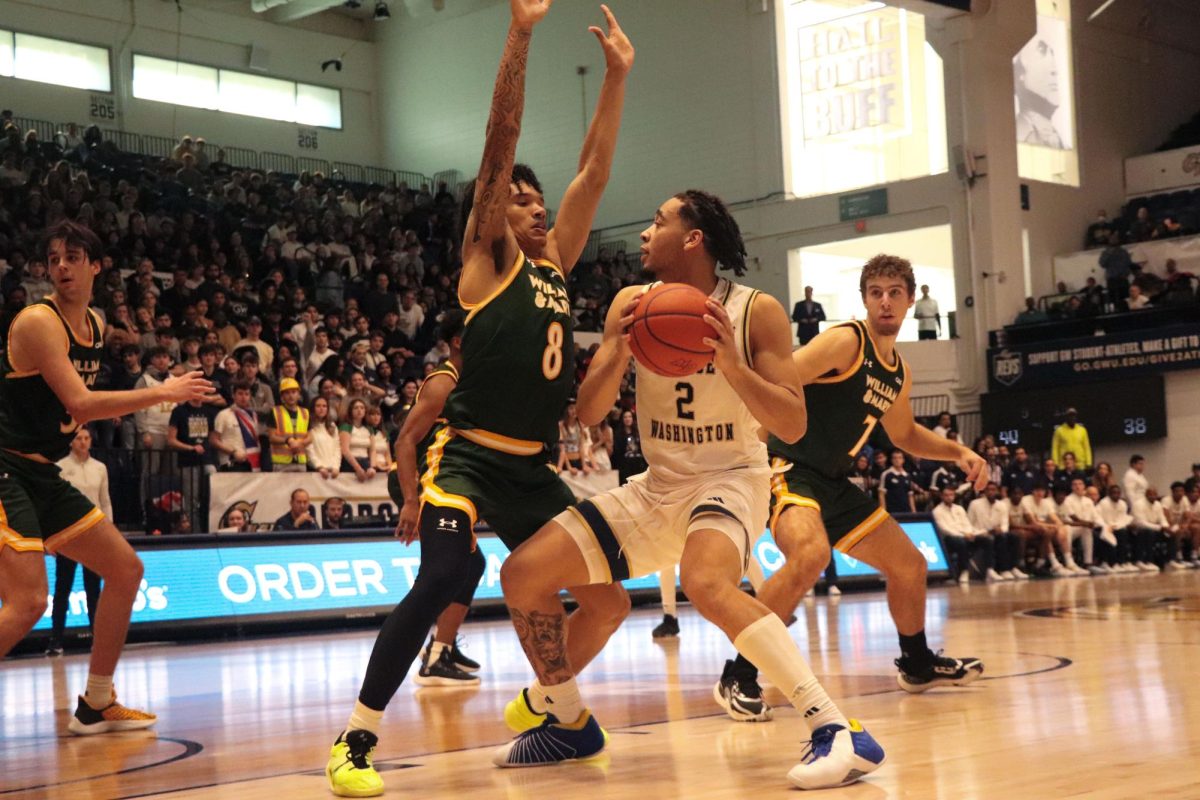The GW Women’s Invite this weekend marks the first time in program history that sailing has hosted a women’s regatta.
For a program to hold a regatta, a team needs to have the available resources to provide visiting teams with boats. In prior years, GW’s team – which is one of the University’s youngest varsity programs – has lacked the number of vessels required to host this type of event, but now the team has an 18-boat fleet to support the event.
Junior captain Marie Line said having the first women’s event this year is a testament to how much the program has grown. The program hosted its first-ever regatta – the GW Team Race – in 2015, a co-ed event that continues annually.
“It shows that we’ve come a long way,” Line said. “We now have a fleet of boats that are race-ready, which is really cool because we didn’t used to have that.”
Since the club became a varsity program in 2012, GW – which is now ranked No. 8 nationally – has quickly established itself as a top program. Line said the team’s climb up the national rankings has been helpful in recruiting, which increases support for the program.
Under former head coach John Pearce, sailing recruited its first class in 2013, including 2017 graduate Brendan Shanahan, who secured GW’s first national championship berth as a varsity program when he qualified for the ICSA Men’s Singlehanded National Championship in 2014.
The program as a whole had a total budget of $175,399 in fiscal year 2017 – an increase of $8,274 from 2016, according to Department of Education data. No other Atlantic 10 school has a varsity sailing program.
“GW has been the most supportive school of sailing that I’ve been to, and I’ve coached at a few schools at this point,” head coach Billy Martin said. “I’ve been so impressed with how much energy is around sailing.”
Line, whose boat finished ninth over the weekend, said the ability to utilize new funds also came as a result of donations from sailing alumni. Through the “Raise High the Sails” campaign in 2014, the team raised $180,000 to build their 18-boat fleet.
“A lot of alumni support helped us fundraise all these boats, and our alumni really do drive our program,” she said. “They just really set the tone for the level of commitment to competition that we want to establish here.”
At last weekend’s invitational, 15 boats from GW, Penn, Navy, Fordham, Virginia and Old Dominion competed in the races. GW’s top boat battled Penn for the lead throughout the competition, eventually winning first place. GW’s other boats finished in second and ninth.
Martin said he hopes the program’s growth will help the regatta become a permanent fixture in the Colonials’ schedule.
“It will be great to do every year,” he said. “We’re really excited to have a great turnout for the first inaugural year.”
The races come just one week before the Colonials are set to compete in the Mid-Atlantic Intercollegiate Sailing Association Women’s Championship in Norfolk, Va. Martin said the team used the weekend’s races as a way to tune up for the regional competition – in which GW finished third last year.
Earlier this month, the Colonials qualified for the Inter-Collegiate Sailing Association Team Race National Championships for the first time in program history, after finishing second in the Prosser Trophy.
Despite GW’s recent recognition and rise in status, Martin said his squad is prepared for even larger events and awards in the future.
“We definitely have the talent to win a national championship, so that’s the next big thing on the list,” Martin said. “And I think it’s doable within the next four or five years.”





